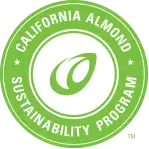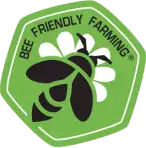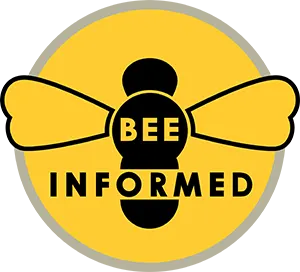Almond sustainability based in generations of orchard stewardship.
Founded to protect farmers. Investing in a better world.
In 1910, a cooperative named California Almond Growers Exchange was founded to help protect small almond farms in a volatile marketplace. Over 110 years later, the co-op now known as Blue Diamond Growers remains committed to sustaining member farms as well as the surrounding land. Most of our approximately 3,000 member farms are family-owned and operated and average under 100 acres of almonds.
See how we’re investing in sustainability efforts and incentives with our growers today, tomorrow, and beyond.

Stay in the Know on How We Grow.
Pint-Sized Lessons in Sustainability
Word on the street is Blue Diamond grows almonds with sustainability in mind. But don’t just take our word for it, hear it from the growers themselves. We keep it fun as we talk about water-usage, honey bee population, and more.


Orchard Stewardship Incentive Program
We invest in regenerative practices by offering our farmers financial incentives for their efforts in sustainability.
In 2020, we started offering more money for almonds that come from farms participating in a comprehensive almond sustainability program from the Almond Board of California. To obtain the highest incentive in our program, growers must also assess their carbon footprint and achieve Bee Friendly Farming® Certification.
In partnership with:


Water Conservation
For over 20 years, Blue Diamond Growers has been committed to water conservation in almond farming.
As a grower-owned cooperative, we share the same concerns that many others have about water usage, and we are committed to being part of the water solution. We pride ourselves on being leaders in agriculture water efficiency and work hand-in-hand with the Almond Board of California to research and invest in ways to become more water-efficient.
Biodiversity & Pollinators
We invest in connecting farmers to resources for planting cover crops and providing resources for pollinators.
Blue Diamond Growers has partnerships with leading honeybee health organizations including Project Apis m., Bee Informed Partnership, and the Pollinator Partnership. These programs help farmers provide pollinator-friendly biodiversity in and around the orchards and advance research for bees and other pollinators.
In partnership with:



Carbon Emissions
We are constantly looking to leaders in the field for ways to reduce our carbon footprint even further.
Like trees in a forest, almond trees use photosynthesis to take CO2 out of the atmosphere and turn it into the components of the wood in the tree. Like a small forest, an almond orchard absorbs carbon from the atmosphere for the 25 year life span of the trees.
Recycling
We’ve partnered with the Sustainable Packaging Coalition to help guide you in recycling our product containers.
